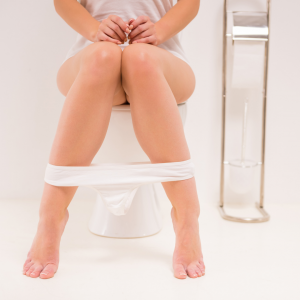These toxins are not just alcohol and cigarettes, they are everywhere, unavoidable and a normal part of life: Metabolite end products, pollution, pesticides on and in your food, pollutants found in water, stress, pharmaceutical drugs… the list is endless, and our bodies constantly work hard to remove them from our systems.
How you can help your body to detox
1. Limiting Alcohol
More than 90% of alcohol is metabolized in your liver. Liver enzymes metabolize alcohol to acetaldehyde, a known cancer-causing chemical. Recognizing acetaldehyde as a toxin, your liver converts it to a harmless substance called acetate, which is later eliminated from your body. Excessive drinking can severely damage your liver function by causing fat build-up, inflammation and scarring. When this happens, your liver cannot function adequately to filter waste and other toxins from your body. So, limiting or abstaining entirely from alcohol is one of the best ways to keep your body’s detoxification system working well.
2. Drinking More Water
Water does so much more than quench your thirst. It regulates your body temperature, lubricates joints, aids digestion and nutrient absorption, and detoxifies your body by removing waste products. Your body’s cells must continuously be repaired to function optimally and break down nutrients for your body to use as energy. However, these processes release wastes in the form of urea and carbon dioxide which cause harm if allowed to build up in your blood. Water transports these waste products, efficiently removing them through urination, breathing, or sweating. So, staying properly hydrated is important for detoxification.
3. Reducing Your Intake of Sugar and Processed Foods
Sugar and processed foods are thought to be at the root of today’s public health crisis. High consumption of sugary and highly processed foods has been linked to obesity and other chronic diseases, such as heart disease, cancer and diabetes. These diseases hinder your body’s ability to naturally detoxify itself by harming organs that play an important role, such as your liver and kidneys.
4. Eating Antioxidant-Rich Foods
Antioxidants protect your cells against damage caused by molecules called free radicals. Oxidative stress is a condition caused by excessive production of free radicals. Your body naturally produces these molecules for cellular processes, such as digestion. However, alcohol, tobacco smoke, a poor diet and exposure to pollutants can produce excessive free radicals. By causing damage to your body’s cells, these molecules have been implicated in several conditions, such as dementia, heart disease, liver disease, asthma, and certain types of cancer. Eating a diet rich in antioxidants can help your body fight oxidative stress caused by excess free radicals and other toxins that increase your risk of disease. Focus on getting antioxidants from food and not supplements. Examples of antioxidants include vitamin A, vitamin C, vitamin E, selenium, lycopene, lutein, and zeaxanthin. Berries, fruits, nuts, cocoa, vegetables, spices, and beverages like coffee and green tea have some of the highest amounts of antioxidants.
5. Focusing on Sleep
Ensuring adequate and quality sleep each night is a must to support your body’s health and natural detoxification system. Sleeping allows your brain to reorganize and recharge itself, as well as remove toxic waste by-products that have accumulated throughout the day. With sleep deprivation, your body does not have time to perform those functions, so toxins can build up and affect several aspects of health. Poor sleep has been linked to short- and long-term health problems such as stress, anxiety, high blood pressure, heart disease, type 2 diabetes, and obesity. You should sleep seven to nine hours per night on a regular basis to promote good health.
6. Eating Foods High in Prebiotics
Gut health is important for keeping your detoxification system healthy. Your intestinal cells have a detoxification and excretion system that protects your gut and body from harmful toxins, such as chemicals. Good gut health starts with prebiotics, a type of fibre that feeds the good bacteria in your gut called probiotics. With prebiotics, your good bacteria can produce nutrients called short-chain fatty acids that are beneficial for health. The good bacteria in your gut can become unbalanced with bad bacteria from use of antibiotics, poor dental hygiene, and diet quality. Consequently, this unhealthy shift in bacteria can weaken your immune and detoxification systems and increase your risk of disease and inflammation. Eating foods rich in prebiotics can keep your immune and detoxification systems healthy. Good food sources of prebiotics include tomatoes, artichokes, bananas, asparagus, onions, garlic and oats.
7. Decreasing Your Salt Intake
Consuming too much salt can cause your body to retain excess fluid. This excess fluid can cause bloating. While it may sound counterintuitive, increasing your water intake is one of the best ways to eliminate excess water weight from consuming too much salt. When you consume too much salt and not enough water, your body releases an antidiuretic hormone that prevents you from urinating and therefore detoxifying. By increasing your water intake, your body reduces the secretion of the antidiuretic hormone and increases urination, eliminating more water and waste products. Increasing your intake of potassium-rich foods which counterbalances some of sodium’s effects can also help. Foods rich in potassium include macadamia nuts, potatoes, squash, kidney beans, bananas, and spinach.
8. Getting more Active
Regular exercise is associated with a longer life and a reduced risk of many conditions and diseases, including type 2 diabetes, heart disease, high blood pressure, and certain cancers. While there are several mechanisms behind the health benefits of exercise, reduced inflammation is a key point. While some inflammation is necessary for recovering from infection or healing wounds, too much of it weakens your body’s systems and promotes disease. By reducing inflammation, exercise can help your body’s systems including its detoxification system function properly and protect against disease.
6. Supplementing your diet
Although a healthy balanced diet should give you all the nutrients you need. Supporting your system with these Antioxidant supplements should help with your detox.
- Glutathione
- Spirulina and Chlorella
- Vitamin B-complex
- Psyllium Husk
- Turmeric
- Milk thistle





